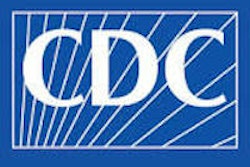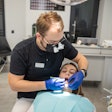
In part one of this series, two dental professionals addressed how to help prevent substance abuse through education, ideal pain management prescriptions, and screenings. This concluding part will discuss how to help those patients within your practice who are already abusing or addicted to intoxicating substances.
What happens when you suspect a patient has a substance abuse disorder? Patrick J. Sammon, PhD, and John Lindroth, DDS, two experts from the University of Kentucky College of Dentistry, discussed effective intervention techniques and how to work with recovering addicts at the recent California Dental Association's CDA Presents 2015 meeting in San Francisco.
Intervene
Dr. Sammon recommends providers use the SBIRT approach to screening and early intervention for substance abuse. SBIRT stands for screening, brief intervention, and referral to treatment, and more information can be found on the SBIRT training website.

He also noted that a critical stage for intervention is before patients switch from snorting drugs to injecting them, because "nobody wants to start shooting up drugs."
"One of the things you can watch for is track marks," Dr. Sammon said. "Just talk to them. You never know when you say something -- don't be afraid to -- it could work."
He pointed out that many people keep using substances because they are scared of having withdrawal symptoms, and so it is important to emphasize that treatment centers can help them with the withdrawal period.
"It's like having the worst flu you've ever had but times 20. It's just awful, awful, awful, and they're scared to death of this. Tell them you can help them by getting them to a treatment center," said Dr. Sammon, adding that opioid withdrawal lasts far longer than alcohol.
"With [patients with alcohol dependence], within 30 days, you get the stuff out of your system, and you start to feel OK again," he said. "With opioids it can last for years."
Finally, if a patient comes into your office and gets angry, try to keep control. "But if it really gets bad, just write a prescription for them and record it," Dr. Sammon advised.
Treat
Proper pain management is important for recovering addicts who are undergoing dental surgery, because unrelieved or unremitting pain is a significant risk factor for relapse craving. Opioid therapy is the gold standard for treating acute postsurgical pain or trauma, and it may be the appropriate choice for recovering addicts, Dr. Lindroth noted.
“Just talk to them. You never know when you say something -- don't be afraid to -- it could work.”
However, before operating on a patient who is in recovery for substance abuse, Dr. Lindroth advises a pretreatment interview to discuss the patient's concerns and postoperative pain management. If possible, it is better to include the patient's sponsor or trusted group member for moral and spiritual support.
"In the urgent care clinic, we always ask them three questions: One, are you using a support group? Two, what's your involvement and success in a 12-step program? Three, do you have a sponsor and are you in close or frequent contact with them?" he said. "A firm foundation in recovery will reduce the risk of relapse."
Involving the patients in the pain-management process and assuring them that they'll get proper pain relief also is crucial. Dr. Lindroth asks patients what medications have worked most effectively to treat their pain and discusses the risk of relapse if the patient uses mood-altering medications. He also advises the use of a trusted other to dispense each dose of potentially intoxicating medication.
The good news is that effective pain management is not likely to lead to relapse. However, providers should still encourage patients to intensify their involvement in a recovery program by attending more meetings and sharing what was talked about in the preinterview.
In the end, Dr. Lindroth recommends verifying with patients' provider or program that they are in recovery, using short-acting opioids if they are necessary for proper pain relief, clock regulate the medication, and avoid pentazocine, because it can lead to increased anxiety.



















